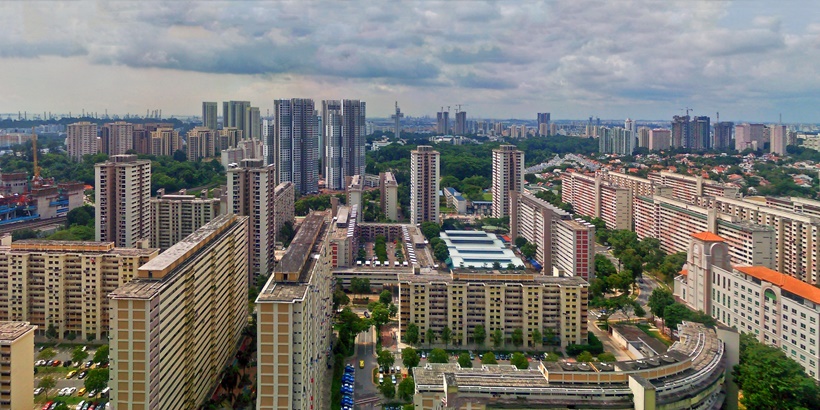
Current policies are geared towards enabling home ownership; Senior Minister of State for National Development Sim Ann said extending public housing rentals to the wider populace will not be embarked on “without deep consideration”.
Expanding public housing rentals to the mainstream may alter social norms and weaken communities, reported Channel News Asia (CNA), citing Senior Minister of State for National Development Sim Ann.
Sim explained that mainstreaming rental would be a “significant departure” from Singapore’s current public housing policy and principles.
“It will reshape our social norms and could weaken our communities, because unlike home ownership, where people sink their roots, rentals are more transitory. This is not something we will embark on lightly without deep consideration,” she said in Parliament on Tuesday (2 November) as quoted by CNA.
She made the comments in response to MP Louis Chua’s adjournment motion, in which he urged the government to significantly raise the stock of rental units for all flat sizes as well as create an “expanded public rental scheme” for the wider population.
Related article: Singapore Property Rental: A Guide for Tenants and Landlords
In his adjournment motion, Chua called for a greater diversity of housing options, but cited the “severe shortage” of Housing and Development Board (HDB) rental flats as a key problem.
He shared that 1.019 million HDB flats were sold in Singapore as of March this year, while the number of rental units stood at just 63,773.
The rental flats are offered through three schemes – the Interim Rental Housing scheme, the Public Rental Scheme and the Parenthood Provisional Housing Scheme (PPHS).
Chua noted that only about 1,600 rental flats are under construction, which are set to be completed progressively by about 2025.
However, current average waiting times for rental units have increased to five months. As such, MPs have received requests for help with appeals for such units.
He added that supply for PPHS units also remains tight, even as the government plans to add another 800 such units.
In fact, 544 applications were filed for the 60 available PPHS units last month, “indicating excess latent demand that cannot be met”.
Chua suggested subsidising and expanding the public rental scheme to support the diverse needs of the wider population, particularly the millennials who face limited living options.
He noted that an expanded public rental scheme would also help remove the stigma attached to HDB rental housing.
“Renting an HDB flat need not and should not be seen as a sign that you are poor and needy, and our position on rentals need to reflect that,” he said, adding that it is a misconception that home ownership is superior to home renting.
Germany and Switzerland, for instance, have home ownership rates of only 44% and 38%, respectively, but are among those with the highest gross domestic product per capita as well as Human Development Index scores globally, said Chua.
“The correlation between home ownership and the level of prosperity of a country may not be as clear cut. Home ownership is thus more of a preference than a superior option,” he said as quoted by CNA.
Chua proposed allowing private developers to partner with the Housing Board to come up with Build-to-Rent (BTR) models.
He also suggested setting up a real estate investment trust (REIT) that would hold the stock of HDB rental units.
“This would also have the additional benefit of supporting the financing of the construction of new rental flats and is self-sustaining, reducing the cash costs on the part of the Government,” said Chua.
In her reply to Chua, Sim underscored the benefits of home ownership, like developing “a sense of rootedness and a concrete stake in Singapore’s progress”.
“Beyond being homes, HDB flats are also valuable assets that can be monetised to supplement their owners’ income during their retirement years,” she said. “More remarkably around 85% of our low-income households own their homes.”
Related article: Guide to Upgrading from an HDB Rental Flat to Owning an HDB Flat
On expanding rental offerings, Sim said renting cultures of other countries reflect different social circumstances. Moreover, without public housing subsidies which support home ownership, some will find themselves renting for many years or even for life.
On renting out flats at subsidised rates, Sim explained that this represents “a change in the nature of our public housing policy and is something we would need to consider very carefully, for reasons of principle as well as practicality”.
“We see the provision of a subsidised rental option as a means towards achieving home ownership, because we believe in the benefits that home ownership brings to Singaporeans,” she said.
In concluding her speech, Sim assured that home ownership will continue to be a key housing strategy of Singapore.
“Beyond just a roof over our heads, home ownership has provided Singaporeans with a sense of stability, security and belonging, and has given us a strong stake in our country’s progress,” she said.
“Given our limited fiscal space, we will continue to prioritise our resources to support Singaporeans in achieving their home ownership aspirations – that is, homes owned by Singaporeans, and not by private investors through REITS.”
Looking for a property in Singapore? Visit PropertyGuru’s Listings, Project Reviews and Guides.
Cheryl Chiew, Digital Content Specialist at PropertyGuru, edited this story. To contact her about this story, email: cheryl@propertyguru.com.sg.

